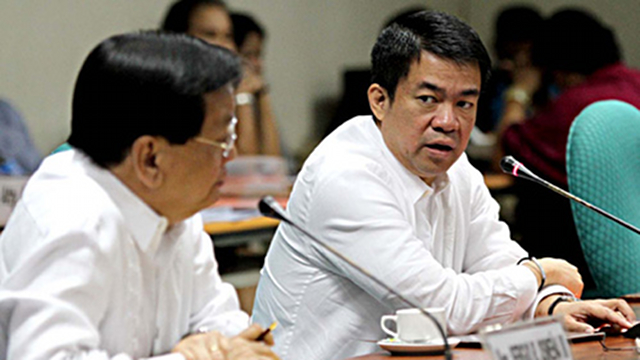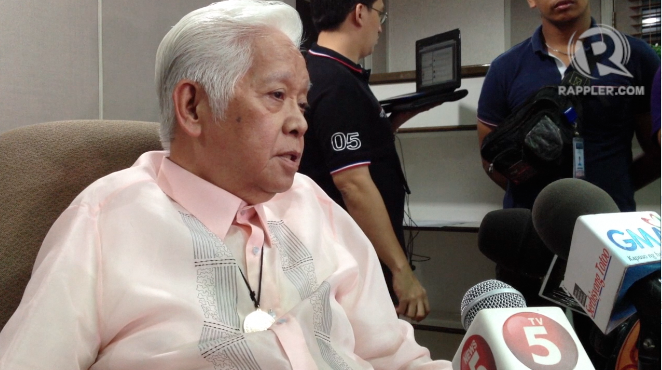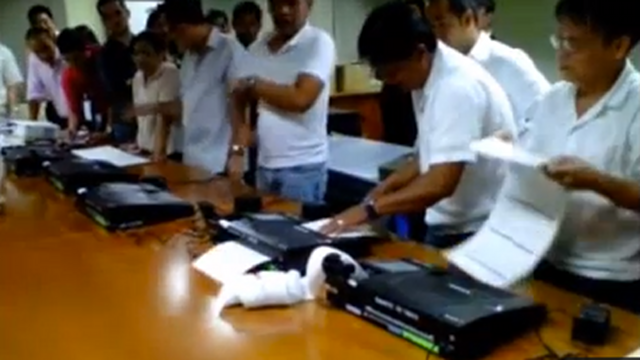
The Philippine Daily Inquirer on Thursday signed an agreement with GMA Network, Smart Communications and Philippine Long Distance Telephone (PLDT) company to team up in covering the 2013 midterm elections.
The memorandum of agreement—also signed by the PDI’s online website INQUIRER.net, leading schools and universities, the business sector, and social and civic organizations—calls on all parties to “cooperate and merge respective competencies to have comprehensive, objective and nonpartisan” media coverage of the elections.
Smart, led by its chairman Manuel V. Pangilinan, and PLDT, represented by its president and chief executive officer Napoleon Nazareno, agreed to be the telecommunications provider of the coverage.

The Senate in the first Congress established after the Edsa Revolt passed an antipolitical dynasty measure drafted shortly after the ratification of the 1987 Constitution that called for such a move, the author of the measure told the Senate committee on electoral reforms Thursday.
Former Vice President Teofisto Guingona Jr., a senator in the 8th Congress and the author of Senate Bill No. 82 in 1987, said that a week after the Senate approved his antidynasty bill, a House leader told him that the chamber would not approve the measure.

MANILA, Philippines – They don’t like political dynasties but they can’t agree on how to define these.
Senators and resource persons clashed on the definition in a Senate hearing on a bill that seeks to ban political dynasties.
In the hearing of the Senate Electoral Reforms Committee on Thursday, November 8, Sen Sergio “Serge” Osmeña III proposed his definition of political dynasties. For Osmeña, if an incumbent local official’s relative runs for office and wins in another locality, this is not a political dynasty. The senator is a member of the Osmeña dynasty of Cebu.

MANILA, Philippines – In their heated debates on the party-list purge, Commission on Elections (Comelec) commissioners often find themselves grappling for basics. Who is “marginalized,” in the first place?
Comelec Chair Sixto Brillantes Jr on Thursday, November 8, admitted the poll body's difficulty in defining marginalized organizations as it screens party-list groups for the 2013 elections. In an interview after a Senate hearing on electoral reforms, Brillantes attributed this to a supposedly insufficient definition under Republic Act 7941 or the Party-List System Act.

MANILA, Philippines – Polling machines could have rejected 40% of sample ballots during an initial testing, but the National Printing Office (NPO) prefers to see this as part of birth pains.
NPO bids and awards committee head Sylvia Banda on Thursday, November 8, said the public shouldn't fear widespread rejection of ballots in the 2013 elections. In an interview on ANC, Banda allayed fears triggered by reports, including a Youtube video, of a ballot testing in September that saw precinct count optical scan (PCOS) machines accepting only 60% of sample ballots.


